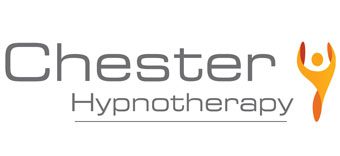Mindfulness-based intervention for teenagers with Attention Deficit Hyperactivity Disorder (ADHD).
Teenagers and young adults with Attention Deficit Hyperactivity Disorder (ADHD) face particular challenges in their day-to-day lives, yet having ADHD is nothing to be ashamed of. In fact, many young people with ADHD are attuned to the unique edge that the symptoms of ADHD can give them. These include the ability to hyper-focus on things they love or are interested by; being driven by new experiences and eager to try new things; having a positive approach to challenges; and being spontaneous and flexible. The latest medical research shows that mindfulness-based intervention can help you manage difficult symptoms of ADHD. My name is Fiona, I’m a mental-health professional specialising in mindfulness training, cognitive behavioural therapy (CBT), and mindful cognitive behavioural therapy (MCBT). I can help you develop long-lasting tools to unlock your true potential, helping you manage disruptive symptoms of ADHD and harness the dynamic edge being neurodivergent gives you.
What is ADHD?
ADHD is a neuropsychiatric disorder that can manifest in disruptive behaviours; difficulty making plans and strategising; impulsivity and risk-taking; problems in interpersonal relationship; and reduced working memory. It is one of the most common disorders among children and often persists into adulthood. Teenagers with ADHD are particularly and uniquely aggrieved by their symptoms, being at the crossroads between childhood and adulthood. This is because the symptoms of ADHD change, decrease and become more pronounced at different stages in our lives. While the hyperactivity-impulsivity side of ADHD, which is more acute in children, becomes less obvious in adulthood, issues in attention become more disruptive in adulthood. Teenagers and young adults can therefore face a combination of these issues all at once.
What is mindfulness-based intervention?
Mindfulness-based intervention is a meditational approach that can be used to help young people with ADHD manage disruptive symptoms. So, what is mindfulness? Mindfulness is a tried and tested practice stemming from the ancient Buddhist tradition, providing psychologists with thousands of years of proof that mindfulness positively and holistically changes lives. It is a form of attentional training, increasing one’s awareness of the present moment in a non-judgemental way. Practicing mindfulness decreases automatic reactions, guiding the meditator, over time, towards making intentional, considered responses. Beyond this, mindfulness is a well-established nonpharmaceutical treatment of depression, stress, pain and illness.
Mastering the skill of being mindful can help teenagers and young adults with ADHD rein in impulsivity; increase attention; and discipline their time, helping them make plans and develop structures to achieve goals, whether that be scheduling time in for homework and hobbies, making time to revise for an exam, preparing for a job interview, or to improve their work-study-social balance.
How mindfulness can be effective
Mindfulness meditation is particularly effective for individuals with ADHD for several reasons. The practice focuses on increasing the ability to control attention and reduce automatic responses. Promisingly, mindfulness has been shown to bring about neuroplastic changes in the part of the brain that supports attention in individuals with ADHD. Research likewise shows that mindfulness-based intervention enhances performances on tasks measuring executive functions, a vital set of mental skills that include working memory, planning and strategising, self-regulation and self-control, and multi-tasking.
The treatment: mindfulness v. medication
Mindfulness-based intervention and mindfulness cognitive behavioural therapy have been shown to be far more effective than the use of CBT alone, particularly among adolescents.
Medication for ADHD, though effective for a short period, leaves users with complaints of residual symptoms and side-effects, and many others do not want to take medication at all. Increasingly, individuals affected by ADHD are turning to nonmedicinal treatments, such as mindfulness. There are two major components of mindfulness-based intervention: the self-regulation of attention (encouraging meditators to observe and pay attention to the moment-to-moment changes of thoughts, feelings, and sensations); and an orientation to experience (encouraging the meditator to maintain a curiosity to where the mind wanders). My role is to help you or your teenager to develop the necessary tools to practice mindfulness on a regular basis.
What to do next
The first thing you can do is get in touch. Together, we can work to find the right mindfulness-based treatment for you. Together, we can unlock the true potential of the ADHD brain, helping you to harness its brilliance and capitalise on the special skill set it gives you.

